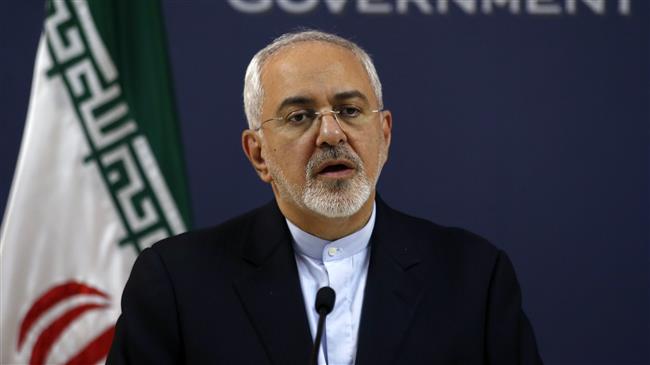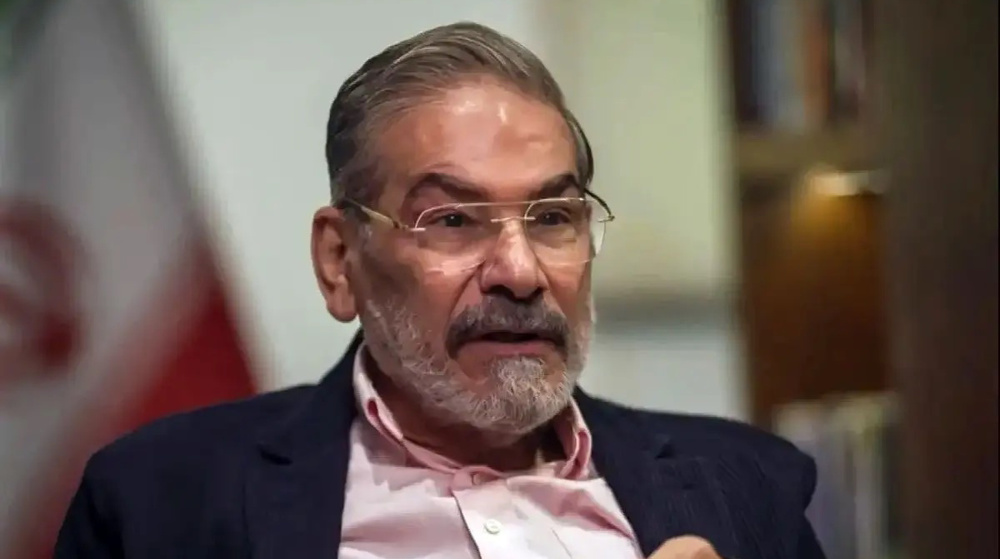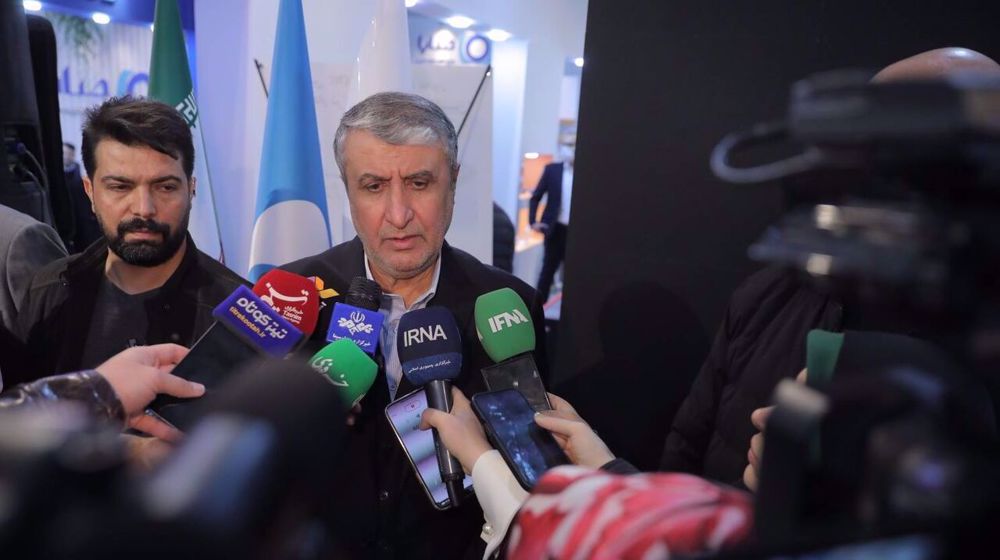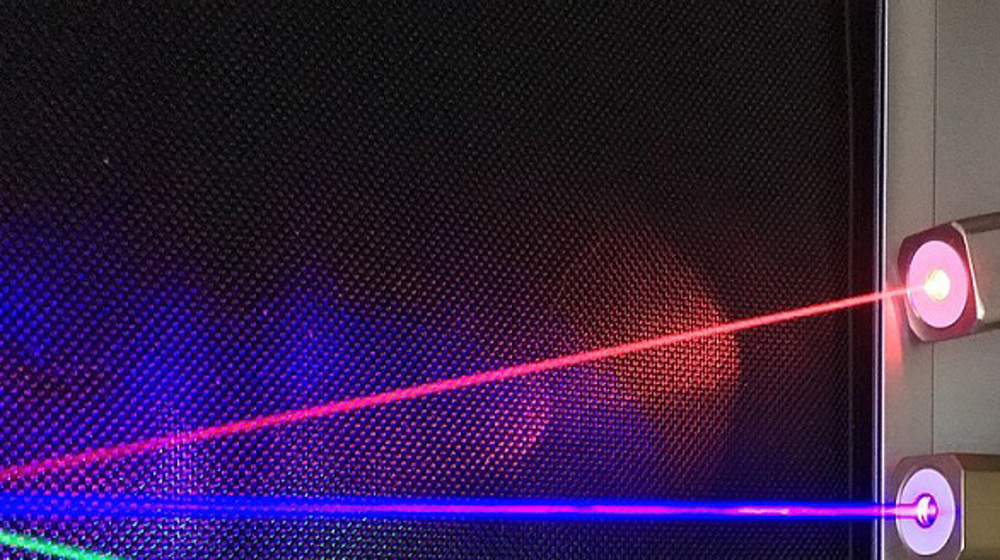'Either all or nothing' on Iran nuclear deal: Zarif
Iran says the European signatories to a multilateral nuclear agreement reached between Tehran and the P+1 group of countries should convince US President Donald Trump not to pull out of the deal, because there is no "Plan B" for it.
"It's either all or nothing. European leaders should encourage President Trump not just to stay in the nuclear deal, but more importantly to begin implementing his part of the bargain in good faith," Iranian Foreign Minister Mohammad Javad Zarif said in a post on his official Twitter account on Monday.
President Macron is correct in saying there's no "Plan B" on JCPOA. It's either all or nothing. European leaders should encourage President Trump not just to stay in the nuclear deal, but more importantly to begin implementing his part of the bargain in good faith.
— Javad Zarif (@JZarif) April 23, 2018
US President Donald Trump is a stern critic of the nuclear deal, officially known as the Joint Comprehensive Plan of Action (JCPOA), reached between Iran and the five permanent members of the UN Security Council -- the United States, France, Britain, China, Russia - plus Germany in 2015.
Under the agreement, nuclear-related sanctions put in place against Iran were lifted in exchange for curbs on Tehran's nuclear program.
He has repeatedly described the JCPOA, which was negotiated under his predecessor, Barack Obama, as “the worst and most one-sided transaction Washington has ever entered into” and threatened to tear it up.
In January, the US president decided to stick with the JCPOA, but gave the European signatories a May 12 deadline to “fix the terrible flaws” of the accord or he would withdraw Washington from the deal.
Other P5+1 parties to the agreement have all criticized Trump’s hostile views, saying the deal is sound and has proven to be functioning. Iran also says it will not accept any change to the agreement.
Elsewhere in his tweet, Zarif said, " President Macron is correct in saying there's no 'Plan B' on JCPOA."
In an interview with Fox News, the American basic cable and satellite television news channel, on Sunday, French President Emmanuel Macron said he has no "plan B" for the landmark nuclear agreement.
He urged the United States to stay in the agreement as long as there is no better option and said, "I don't have any plan B. Let's present this framework because it's better than the sort of North Korean-type situation."
Iran has repeatedly announced that it would stick to the JCPOA as long as all other parties remain committed to their obligations under the deal but will quit the agreement if Washington exits.
The French president is currently on a three-day state visit to the United States to discuss a range of issues, including the JCPOA, trade ties and the joint France-US-Britain military strikes against Syria earlier this month.
Macron is the first foreign leader to make state visit to Washington since Trump took power in January 2017. He is on something of a rescue mission for the Iran nuclear deal amid differences between the US president and the European signatories to the deal on the JCPOA fate.
Read more:
- Europe must pressure US to comply with Iran nuclear deal: Zarif
- US to regret any nuclear deal violation: Iran's Rouhani
Putin, Macron agree on JCPOA continuation: Kremlin
Russian President Vladimir Putin and his French counterpart said the Iran nuclear deal should be continued.
In a phone call on Monday, Putin and Macron stressed the importance of the JCPOA continuation as Trump's May 12 deadline nears.
The European Union on April 16 reiterated its strong and unequivocal commitment to the full implementation of the nuclear agreement with Iran by all sides, saying preserving the deal is vital.
"The Europeans have always made it clear, the European Union has always made it clear that for us, keeping the agreement in place is vital. It is a strategic interest for the European Union and we will stick to it," EU foreign policy chief, Federica Mogherini, said in Luxembourg.
Iran's nuclear chief said on Saturday the Islamic Republic's response readiness would "startle" the United States should it decide to pull out of the JCPOA.
"We hope that the other side makes a wise decision and avoids carrying out an action that would cause a nuisance for itself and others," Head of the Atomic Energy Organization of Iran (IAEA) Ali Akbar Salehi told reporters.
Russia, China will obstruct US bids to sabotage JCPOA: Lavrov
In a related development, Russia and China agreed on Monday to make efforts to block any US bid to sabotage the Iran nuclear deal, Russian Foreign Minister Sergei Lavrov said on Monday.
Lavrov made the remarks after a meeting with his Chinese counterpart Wang Yi in Beijing, Russian state news agency TASS reported.

"We are against revising these agreements, we consider it very counterproductive to try to reduce to zero years of international work carried out via talks between the six major powers and Iran," TASS quoted Lavrov as saying.
"We will obstruct attempts to sabotage these agreements which were enshrined in a UN Security Council resolution," the top Russian diplomat added.
The UN Security Council on July 20, 2015 unanimously adopted Resolution 2231, which endorses the JCPOA.
Resolution 2231 provides for the termination of the provisions of previous Security Council resolutions on the Iranian nuclear issue and establishes specific restrictions that apply to all states without exception.
A nuclear non-proliferation conference in Geneva on Monday heard repeated calls for all parties to the JCPOA to ensure its implementation and preservation.
European Union's disarmament envoy Jacek Bylica said the JCPOA has strengthened the international non-proliferation regime, contributed to regional and international security and ensured the exclusively peaceful nature of Iran's nuclear program.
A senior official at the International Atomic Energy Agency (IAEA), Cornel Seruta, said the accord had significantly improved access to Iran.
"In short, Iran is now subject to the most robust nuclear verification regime and Iran is implementing its nuclear related commitments under the JCPOA," he said.
"It is essential that Iran continues to fully implement those commitments," he added.
In his latest report on March 5, the IAEA Director General Yukiya Amano once again confirmed Iran's compliance with the nuclear agreement, warning that any collapse of the deal would be a "great loss."
Amano said, "As of today, I can state that Iran is implementing its nuclear-related commitments…If the JCPOA were to fail, it would be a great loss for nuclear verification and for multilateralism."
Read more:
- US in no place to set conditions for Iran nuclear deal: Zarif
- Iran FM warns US against 'painful mistake' of quitting nuclear deal
- Following suit with US on nuclear deal humiliating for Europe: Salehi
Germany, France to urge Trump not to quit JCPOA: German FM
Meanwhile, Germany's Foreign Minister Heiko Maas said on Monday that the German and French leaders would urge President Trump not to pull out of the Iran nuclear deal, warning that doing so could cause major problems.
"We believe it is extremely important to uphold this agreement. Were it to fail or the US to drop out, we would not have anything comparable to it and we fear that the situation would significantly deteriorate with everything that goes with it," Maas told reporters on the sidelines of a meeting of foreign ministers from the Group of Seven leading industrialized nations.
He added that German Chancellor Angela Merkel and President Macron would meet in Washington soon to oblige the US president to stay in the accord.
India has made no official move to halt Russian oil imports: Kremlin
Iran’s biotech leap into global elite club of seahorse breeders
World scholars, thinkers express support for Ayatollah Khamanei
Hezbollah leader warns of ‘existential threat’ amid US-Israeli disarmament push
Vietnam preparing for possible US military aggression: Leaked report
Qatar: High-level dialogue with Iran ongoing to prevent regional escalation
VIDEO | 'Iranians will not hand over the country due to US military threats'
VIDEO | Gaza’s key Rafah crossing with Egypt reopens with strict limits














 This makes it easy to access the Press TV website
This makes it easy to access the Press TV website